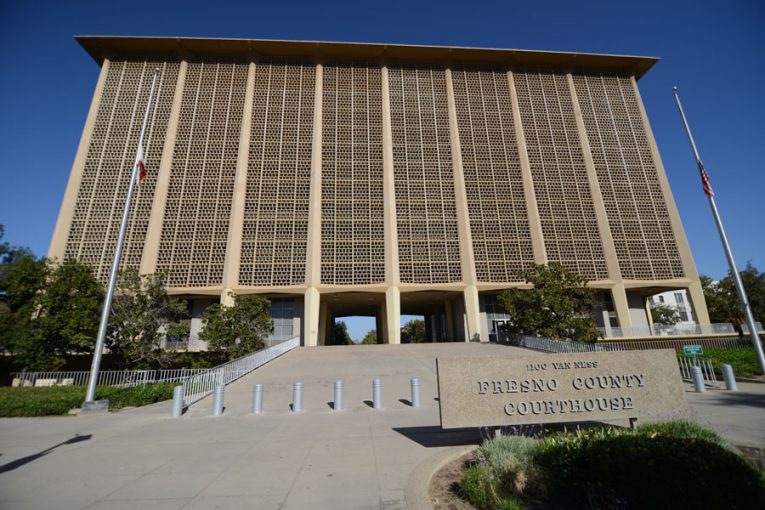

By Phoebe Glick
FRESNO – In response to the COVID-19 pandemic, California superior courts—including Fresno Superior Court—have shifted their procedures in order to protect the public, with startling implications.
In order to reduce jail populations during the COVID-19 pandemic, the California Judicial Council released Emergency Rule 4 several months ago to reduce the number of people in county jails, which are potential hot spots.
The council’s action created the “Emergency Bail Schedule,” mandating that “bail for all misdemeanor and felony offenses must be set at $0” with some exceptions. This still gives judges some discretion to set higher bail amounts in appropriate circumstances, including public safety. But it allows for people accused of most misdemeanors and low-level felonies to return home before their arraignments.
This change, coupled with implementation of virtual court proceedings, undoubtedly protects the public during a deadly pandemic. However, this change comes with unique challenges—defendants are  failing to appear in court at far higher rates than usual.
failing to appear in court at far higher rates than usual.
In one such case, Fresno defendant Jose Alcala was released from jail on May 11 in accordance with the Emergency Rule (waiving a $5,000 bail requirement), imposed because of the pandemic.
Following his release, a notice to appear in court was sent to him on June 29, but was returned to the sender with no forwarding address July 21. Alcala appeared to an arraignment on August 3, after which he was remanded to custody with a $5,000 bail. His next arraignment is scheduled for August 11.
In another case, Louis Arevalo was charged with criminal trespass. An arraignment June 18 resulted in a continuance because the defendant was in quarantine. After the arraignment, Arevalo was remanded into custody but released with zero bail in accordance with the Emergency Rule.
At the following arraignment, Arevalo did not appear and a bench warrant in the amount of zero dollars was issued. At the following two arraignments on August 3 and 4 the defendant was not present. The warrant for Arevalo remains active.
Why the increased lack of appearances? Dena Carr, Director of House of Charity homeless shelter in Spokane, WA, believes it’s due to lack of access to resources needed to appear in court.
“For the most part, people do want to be able to follow through with their obligations,” she said. To help them follow through, Carr is working with Spokane County commissioners to establish “remote access points” to courts located in the shelter itself. These will offer defendants the chance to appear virtually in court, in private rooms with tablets and technology assistance provided.
This kind of intervention allows otherwise excluded populations to participate in the justice system. Even when ordered to appear in court, people may face significant barriers in the form of difficulty accessing housing, transportation, and technology.
California is already home to one-fourth of the nation’s homeless population, and the COVID-19 pandemic is predicted to cause an increase of 20 percent. This would expand the homeless population to approximately 180,000 people. Without a stable address, defendants may not receive notices to appear.
Beyond that, it’s difficult to imagine that responding to court summons could be prioritized over finding a place to sleep at night.
Transportation is also an issue—those who relied on public transport may be unable to ride or are uncomfortable with riding.
LA Metro reports that bus ridership has fallen 64 percent; rail ridership has fallen by 76 percent. Rideshare apps like Uber and Lyft have discontinued carpool options and actively discourage unnecessary travel. Getting a ride to the courthouse or to somewhere with a computer may be entirely out of the question for some people.
Technology similarly poses an issue. Approximately 50 percent of low-income families are struggling to pay internet and phone bills, according to a Pew Research survey.
Many people simply do not have access to computers, high-speed internet connections, or the technological know-how to conduct a Zoom meeting. Furthermore, in sensitive cases such as domestic violence issues, advocates have expressed concern that affected populations will not be able to find the privacy needed to safely conduct virtual court appearances.
Factors like this have deep impacts on defendants ordered to appear in court, and it’s up to judges to act compassionately to recognize the repercussions of the pandemic, according to legal observers.
Mark King, representing Ralph Avery and Juanita Mares, argued on August 4 for a bench warrant for his clients to be withdrawn. King asserted that Avery and Mares, without access to steady housing or transportation, should not be subject to the warrant.
Fresno Court Judge Ana de Alba recalled the warrants, and offered King instructions on how to continue through the case under new virtual processes.
To sign up for our new newsletter – Everyday Injustice – https://tinyurl.com/yyultcf9
